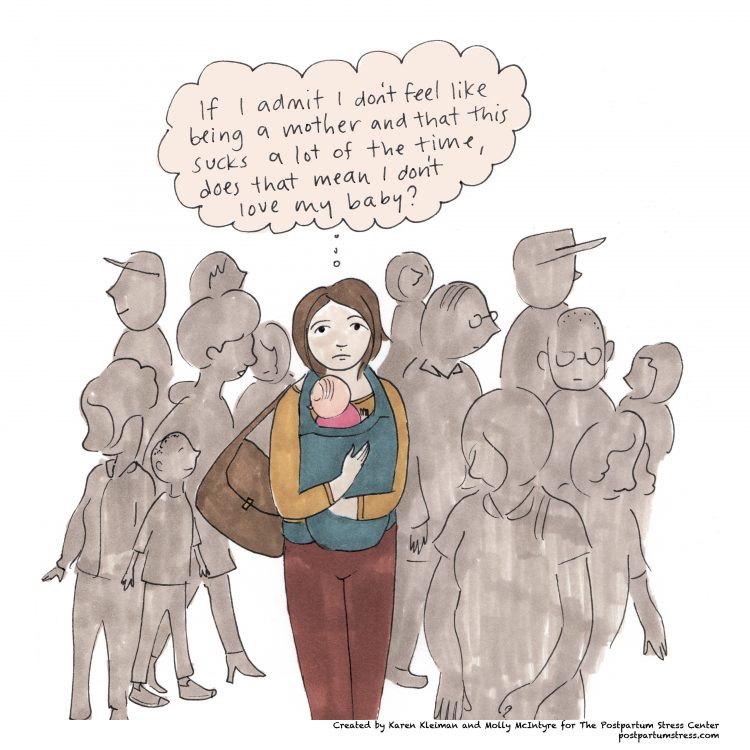No one talks about the negative thoughts new mothers have after they have a baby. Not healthcare providers. Not mothers. Not family members. Even though there is increased attention to pregnancy and postpartum mental health, we remain stunned to hear that sometimes, a mother doesn’t feel so great about being a mother. There are times when it is just plain hard, exhausting and wearisome. Sometimes, it’s terrifying.

If a postpartum woman experiences anxiety after the birth of her baby, it can manifest in many ways. It can make her doubt the choices she makes. It can damage her self-esteem. It can cause her to ruminate and worry more than she has ever done before. Or, it can give rise to negative thoughts that swirl around in her head and make her feel as if she is losing her mind. But she is not.
Despite advanced public awareness and increased attention to the experience of motherhood on the whole, expectations that new mothers feel good about themselves, and particularly about their babies, remain extremely high.
Thus postpartum women do not talk about how they are really feeling.
The unspoken words often reflect a strong negative inner critic. They fear being judged, or misunderstood, or dismissed, or deemed unfit to be a mother. They fear having their baby taken away from a mother who surely must be “crazy.”
The taboo against mothers expressing negative feelings about their experiences or about their babies operates as reinforcement for their silence. Some women try not to think about how bad they feel, hoping it will all go away by itself. Others worry this is a permanent state of being. Still, others are not sure if seeking help will make things better or worse.
Therefore, postpartum women pretend to be fine. They go to great lengths to look good and tell others they are “fine.” They often find it difficult to ask for help and spend a ton of energy making sure everything appears perfect.

Negative thoughts about being a mother, even scary thoughts about harm coming to the baby, are common during the postpartum period.
They are common with all new parents, not just those with symptoms of depression and anxiety. Furthermore, women discover that when they talk about what they are feeling and thinking in a safe environment with someone who understands this is a universal phenomenon, they feel better. Their anxiety decreases.
Those of us in a position to understand the nature of these thoughts want postpartum women to know: It’s OK to talk about your negative thoughts and feelings. Find a safe person and let them know how you are feeling and what you are thinking. If your feelings of distress interfere with your ability to get through the day, let a healthcare professional know.
For more on the #SpeakTheSecret campaign, click here.
If you or a loved one is affected by postpartum depression or other postpartum disorders and need help, you can call Postpartum Support International‘s hotline at 1-800-944-4773.
We want to hear your story. Become a Mighty contributor here.
Images via Karen Kleiman and Molly McIntyre for The Postpartum Stress Center.

